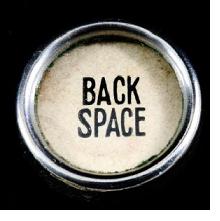Once you have studied a publication, done some homework on who to send your query letter to and have written up a query (we’ll cover that in another installment) you hit the mailbox or e-mail and wait for a reply.
At this stage, new freelancers often have the same two questions: how long does it take to get a reply, and what happens if they turn me down?
The answer to question one? There is no set answer–it all depends on the publication. In my own personal experience two things usually happen when the editor is actually interested in working with y ou–you’ll either get a reply right away (a week or two in some cases, but I’ve had editors write me same day when there’s something they really like) or you might hear back from the editor in a year, saying “I was interested in this when I saw it last year but got busy and forgot about it. Would love to work with you NOW, though.”
Then again, editors get swamped with work, and their idea of an immediate response will definitely vary from yours. Patience is the name of the game.
When it comes to rejection, in my experience two things tend to happen–especially in the early stages of your freelance career. There’s either no reply at all, or a quick note to say “thanks, but we’re full.” A detailed reply in my own experience was rare. But that’s not to say they don’t happen. When gonzo journalist Hunter Thompson was trying to land work, he often got detailed replies thanks in part to the outrageous nature of the queries he often sent.
My rejection letters, which in the early days included Wired magazine and Writer’s Digest, were quite informative–if you get an actual rejection letter that isn’t a glorified form letter, read it carefully. My rejection letters taught me plenty. Wired told me my stories were good, but too late–the editor himself had already written a couple of pieces on the subjects I wanted to cover. In other words, I hadn’t done my homework properly.
My rejection from Writer’s Digest told me there was a line a mile long to get into that magazine and that I should find creative ways to sell my pieces to different magazines that had less competition. And that’s one of the keys of being a successful freelancer–learning where to submit your work where there isn’t as much competition as with Popular Magazine X or Insanely Trendy Website Y that EVERYBODY wants to submit a query to….






